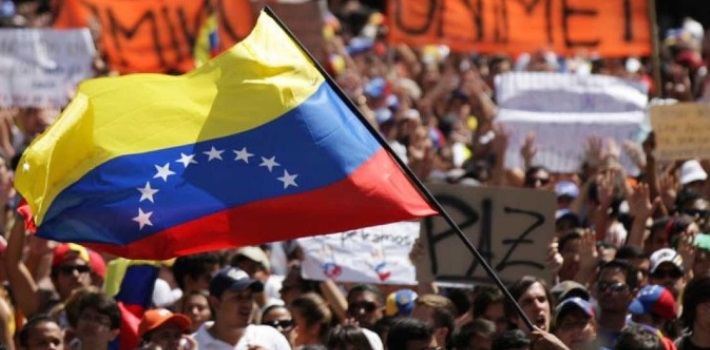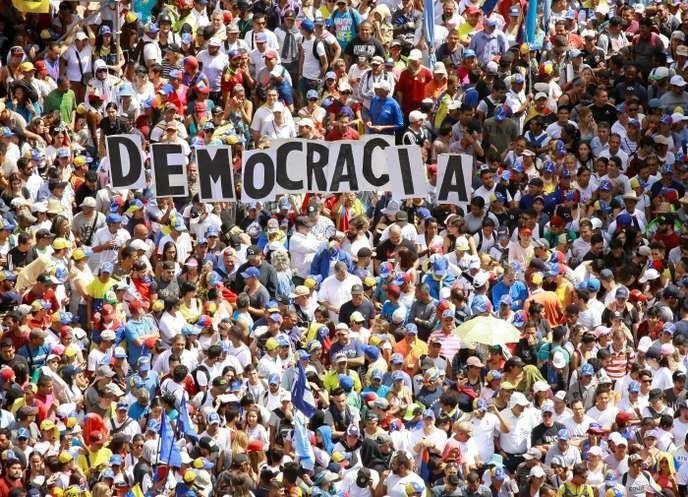According to a report prepared by Venezuela civil association Mulier, 517 women were rescued from traffickers in 2020. July 30 marked the World Day against Trafficking in Persons
124 Venezuelan girls were rescued from human trafficking networks in 2020. The figure increased 27.4% compared to 2019 when 90 Venezuelan girls were rescued, according to a report by Venezuela civil association Mulier entitled “Free and Safe”.
The United Nations Office on Drugs and Crime (UNODC) considers human trafficking a global problem and one of the most shameful crimes that deprive millions of their dignity around the world. Traffickers deceive women, men, and children and subject them to exploitation.
The best-known form of trafficking is sexual exploitation, however other victims are subjected to forced labor, domestic servitude, child begging, or organ removal.
July 30, 2021, marked the World Day against Trafficking in Persons, established in 2013 by the United Nations General Assembly to raise awareness among governments about the expansion of this crime, which according to the International Organization for Migration (IOM constitutes the third most lucrative illicit business in the world, with annual profits estimated between 32 and 36 billion dollars.
According to the Global Report on Trafficking in Persons, the number of children affected by this crime has tripled in the last 15 years.
A total of 517 Venezuelan women were rescued from human trafficking networks in 2020, according to Mulier’s annual report. The number decreased from 672 rescued women in 2019.
“Although the figure has decreased, this does not mean that the commission of the crimes has decreased. According to the United Nations Office on Crime, for every identified victim 20 more remain unknown. This decrease also has to do with the pandemic because journalists did not have the same possibility of going out to report, and our investigation is based on the press,” explained Verónica Mesa, Mulier’s research coordinator.
Most of the victims were rescued in countries of Latin America and the Caribbean. However, Spain was found to be a country for the transfer of women to different points and also for the arrival of Latin American, African, or Eastern European women.
Mulier’s report highlights that 210 Venezuelan women were rescued in Venezuela, 60 in Colombia and Guyana, 52 in Trinidad and Tobago, 39 in Spain, 32 in the Dominican Republic, and 26 in Mexico.
Other countries with records of rescues of Venezuelan women are Argentina, Bolivia, Peru, and Panama.
According to the documentation, 228 people were detained concerning the cases, although Mesa assured that it is difficult to determine who will reach a sentence. 37 of the arrested are women and 64 men.
“It is very important to bear in mind that traffickers can be men and women, close to the victim, and of the same nationality. Very frequently, trafficking rings use people close to the victim because they leave their neighborhood for a while and return with expensive things that they did not have before and become links because they use that image of a successful life experience as the bait for the potential victim”, explained Mulier’s research coordinator during the Third Seminar on Trafficking in Persons, organized by Venezuelan civil association Éxodo.
The pandemic fueled human trafficking
Before the World Health Organization (WHO) proclaimed COVID-19 a pandemic, the United Nations (UN) had already warned that the situation caused by the virus could fuel human trafficking and people smuggling due to the closure of borders and mobility restrictions.
The UN also determined that the pandemic could generate high unemployment rates and this would increase the risks of exploitation of people who seek to migrate to improve their quality of life.

Mulier’s research warns that the majority of minors who are in Venezuela or migrate are especially vulnerable and much more since the onset of the COVID-19 pandemic. One of the factors that increase their vulnerability is school dropout, which is estimated to have exceeded 50% in Venezuela in 2020, according to the report. Similarly, countries like Ecuador, Colombia, and Peru had estimated that 50% of Venezuelan children did not go to school even before the pandemic.
Mulier’s report highlighted that girls and teenagers drop out of school to take care of domestic chores or to find work, and this implies a greater risk of being captured by networks of trafficking in persons or falling victims to gender-based violence.
Verónica Mesa explained that girls and teenagers who continued their education online during the pandemic were also exposed to situations of abuse, sexual exploitation, and human trafficking, by spending more time online and risking being contacted by traffickers.
The Committee on the Elimination of Discrimination against Women (Cedaw) also warned of the increased use of social media by traffickers to recruit victims during the pandemic.
Amina Achaibou, chief of research at the Mexican organization Sintrata, added that a New York Times study conducted in 2019 revealed that technology companies reported more than 40 million photos of children and teenagers depicting situations of sexual abuse.
“We are in a pandemic of online sexual exploitation of boys and girls. Given that they must stay at home, children are using the Internet much more often and are more exposed to these crimes. Also, abusers have moved more towards social media and the internet after they found themselves unable to travel around”, Achaibou said during the Third Seminar on Trafficking in Persons.

Another risk factor for girls and teenagers cited in the research is family separation. “One in four Venezuelan girls leaves the country alone or without their parents or authorized representatives, becoming much more vulnerable to this crime,” Verónica Mesa said.
Mesa added that the crime of human trafficking does not affect all Venezuelan women in the same way, since indigenous girls and teenagers who live in border areas or around the Orinoco Mining Arc are especially vulnerable to any exploitative work. These are areas where the State is absent and the control is exerted by criminal groups.
The researcher insisted that Venezuela needs robust public policies to fight against human trafficking and prevent girls, teenagers, or women from being re-victimized by accusations of crimes they did not commit when they were in a situation of human trafficking. “They must be repaired and offered the opportunity to resume their lives.”
You can find the full report in Spanish HERE.
Translated by José Rafael Medina




